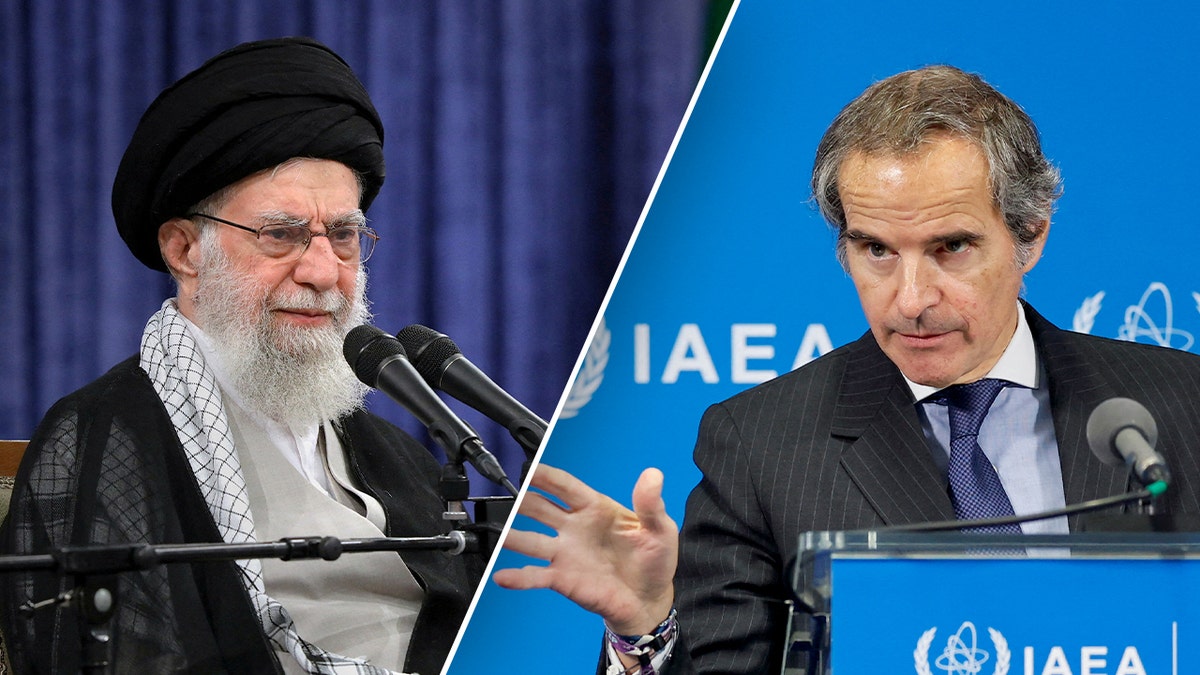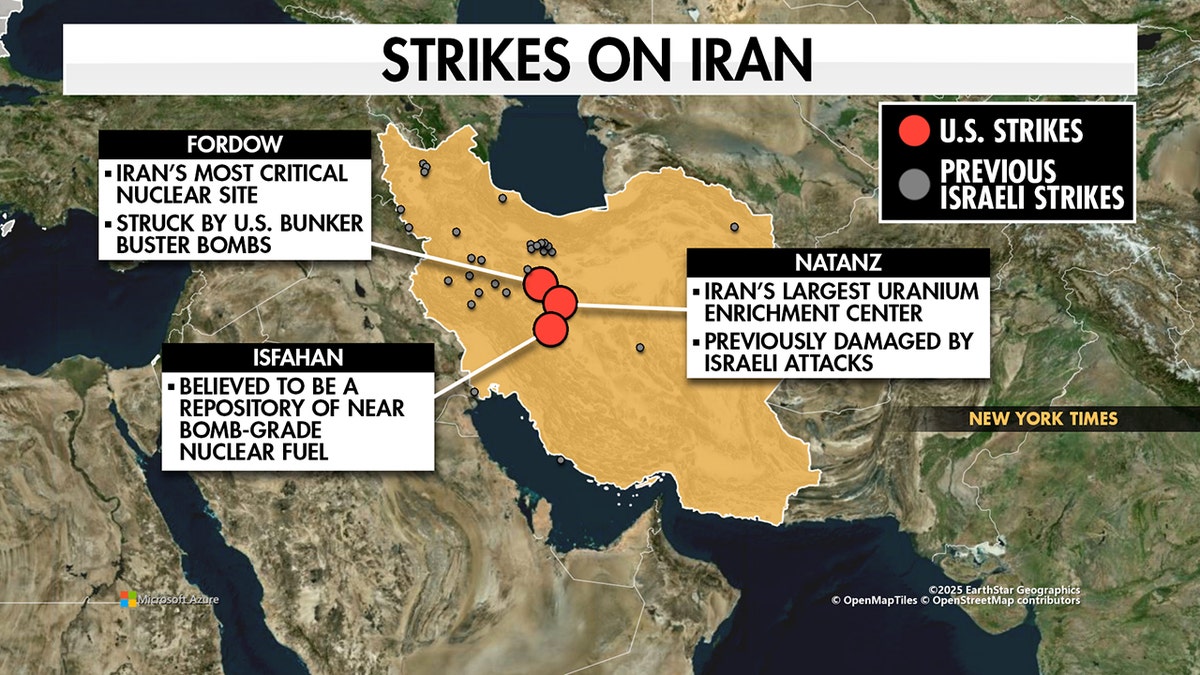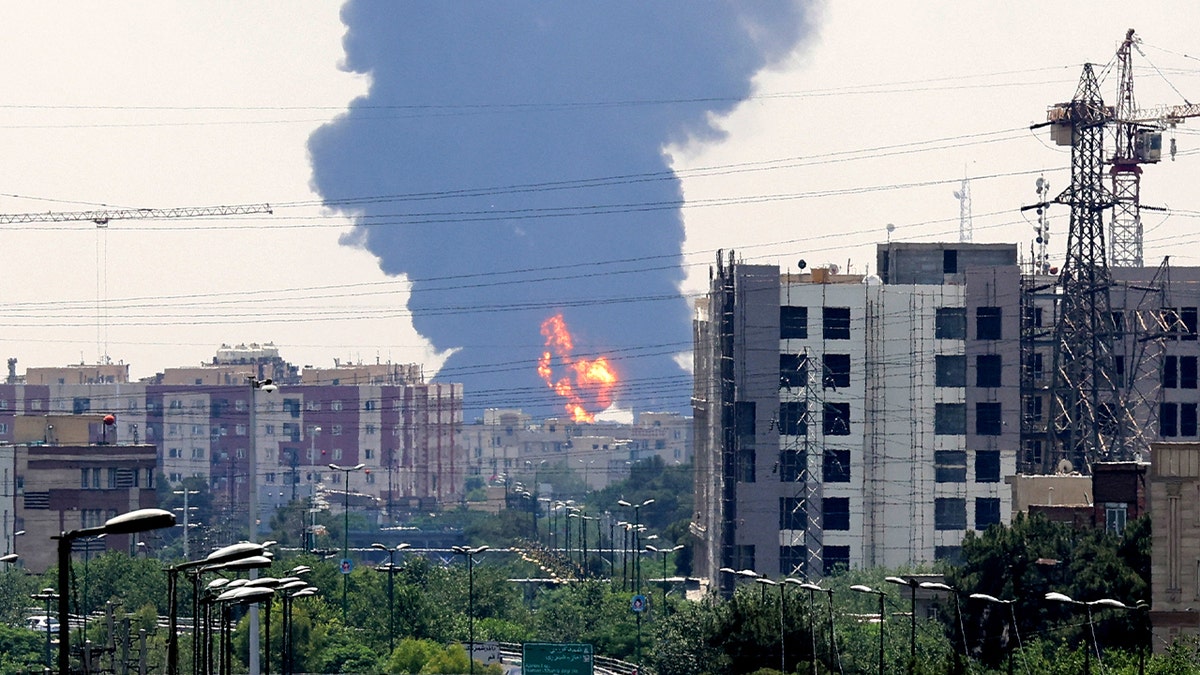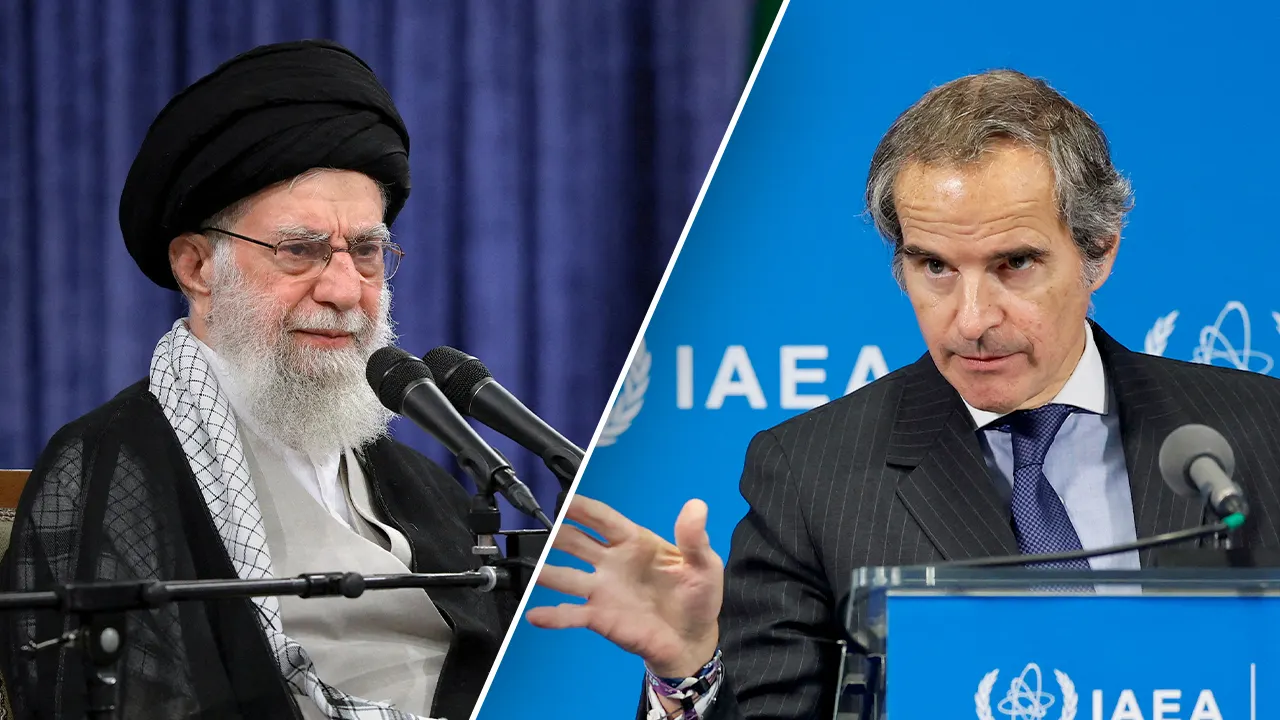NEWYou can now listen to Fox News articles!
Iranian President Masoud Pezeshkian enacted a law passed by the country’s parliament last week that would end Tehran’s cooperation with the International Atomic Energy Agency (IAEA).
The legislation was approved within days of the U.S. carrying out Operation Midnight Hammer, in which it struck three major nuclear sites in Iran: Natanz, Isfahan and Fordow.
The law stipulates that any future inspection of Iran’s nuclear facilities by the IAEA must be approved by the country’s Supreme National Security Council, according to Reuters. Iran maintains that the IAEA sided with the U.S. and Israel in the recent conflict. Additionally, Tehran claims that the IAEA’s resolution in early June paved the way for Israel’s strikes.

Iran cuts ties with U.N. nuclear watchdog IAEA following U.S. and Israeli strikes on Tehran’s nuclear facilities. (Reuters)
IRAN’S NUCLEAR CAPABILITIES CRUSHED, BUT REGIME’S DESIRE FOR THE BOMB MAY PERSIST
Pezeshkian’s order reportedly had no timetable or details about what the suspension of cooperation would entail, The Associated Press reported.
IAEA head of Media, Multimedia and Public Outreach Section and spokesperson Fredrik Dahl told Fox News Digital that the agency was still awaiting confirmation from Iran.
Nuclear negotiations between the U.S. and Iran have been on pause since Israel launched Operation Rising Lion. Iran then wavered on whether it would continue the talks, claiming that the U.S. was complicit in Israel’s actions. However, President Donald Trump appeared hopeful that the two countries would return to the table, even after the U.S.’ historic strikes. On June 25, the president told reporters that the U.S. would talk with Iran the following week.

A map of the U.S. strikes on Iran. (Fox News)
UN’S ATOMIC AGENCY’S IRAN POLICY GETS MIXED REVIEWS FROM EXPERTS AFTER US-ISRAEL ‘OBLITERATE’ NUCLEAR SITES
Iranian Foreign Minister Abbas Araghchi recently told CBS News that “the doors for diplomacy will never slam shut.” However, he also cast doubt on Trump’s timeline for when talks would resume.
“I don’t think negotiations will restart as quickly as that,” Araghchi told CBS News. “In order for us to decide to reengage, we will have to first ensure that America will not revert back to targeting us in a military attack during the negotiations.”

A massive plume of smoke and fire rise from an oil refinery in southern Tehran following reports that an overnight Israeli strike targeted the site on June 15, 2025 in Tehran, Iran. (ATTA KENARE/AFP)
CLICK HERE TO GET THE FOX NEWS APP
While Trump’s critics have argued that the administration has exaggerated the extent of the damage to Iran’s nuclear sites, parties involved in the conflict seemingly agreed on the status of the facilities. Iranian Foreign Ministry spokesperson Esmail Baghaei acknowledged that the sites were “badly damaged” in an interview with Al Jazeera.








